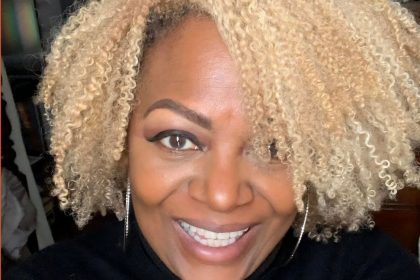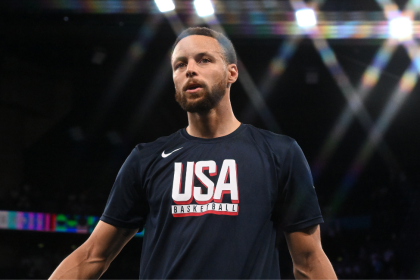Actress highlights unintended harm to minority authors from retail protest movement
Actress and entrepreneur Tabitha Brown has stepped forward to spotlight how the Target boycott is creating unexpected hardships for Black authors across the publishing industry. The Emmy-winning personality recently addressed concerns about declining book sales affecting minority writers, emphasizing the complex relationship between consumer activism and its impact on creative communities.
Retail boycott hurts book sales
The ongoing Target boycott, launched in response to the company’s scaling back of diversity initiatives, has significantly affected Black authors who depend on the retailer’s extensive distribution network. As one of America’s largest book sellers, Target serves as a critical sales channel for authors seeking broad market reach beyond traditional bookstore networks.
Brown emphasized how the protest movement has created an unintended consequence for the very community many supporters aim to help. Black authors have experienced substantial drops in book sales as consumers avoid making purchases at Target locations nationwide. This decline affects both immediate revenue and long-term career prospects, as publishers often use sales performance to determine future book deals and marketing investments.
The retail giant’s role in book distribution extends far beyond simple shelf space. Target’s purchasing power and nationwide presence provide authors with access to diverse consumer demographics, including readers in communities where independent bookstores may be scarce. When this channel becomes unavailable due to boycott activities, authors lose a vital connection to their potential audience.
Publishing industry data suggests that some Black authors have seen sales decreases of up to 40 percent since the boycott intensified. These numbers represent more than statistical declines—they translate to reduced royalty payments, fewer opportunities for bestseller list placement, and diminished prospects for securing favorable publishing contracts in the future.
Entertainment figure becomes advocate
Brown leveraged her substantial social media presence to bring attention to this overlooked consequence of the retail protest. Her advocacy represents a growing trend of entertainment personalities using their platforms to address complex social issues that extend beyond surface-level activism.
The actress emphasized her commitment to supporting Black creators and businesses despite facing criticism from some quarters. Her message focused on encouraging thoughtful consideration of how consumer choices affect various communities, particularly those already facing systemic challenges in creative industries.
Brown‘s intervention demonstrates how public figures can play crucial roles in highlighting nuanced aspects of social movements that might otherwise go unnoticed. Her position as both an entertainer and entrepreneur provides her with unique insights into how economic pressures affect creative professionals.
The response to Brown’s advocacy has been mixed, with some supporters appreciating her efforts to protect Black authors while others questioned her stance on the boycott itself. This division illustrates the complex dynamics surrounding consumer activism and the challenges of balancing different social justice priorities.
Publishing sector adapts to challenges
Publishers have begun acknowledging the boycott’s impact on their diverse author portfolios, with several major houses adjusting their distribution strategies to compensate for reduced Target sales. Some companies have increased their focus on independent bookstore partnerships and online direct sales to maintain revenue streams for affected authors.
The situation has accelerated conversations within the publishing industry about reducing dependence on large retail chains. While diversification of sales channels may ultimately benefit authors by creating more stable distribution networks, the transition period continues to present significant challenges for those currently experiencing reduced sales.
Several publishing executives have expressed concern about using current sales figures to evaluate author performance, recognizing that external factors like the boycott create misleading metrics. This awareness has led some companies to implement alternative success measurements that account for unusual market conditions.
Independent bookstores have reported increased interest from publishers seeking to expand their reach beyond major retail chains. This shift could potentially strengthen the independent bookstore ecosystem while providing authors with more diverse sales opportunities.
Community mobilizes support efforts
Following Brown’s advocacy, various organizations and reading communities have launched initiatives to support Black authors through alternative purchasing channels. Book clubs, literary organizations, and social media groups have organized coordinated buying campaigns to help offset lost Target sales.
These grassroots efforts demonstrate how targeted community action can address specific economic challenges facing minority creators. Online platforms have facilitated direct connections between authors and readers, bypassing traditional retail intermediates entirely.
Some independent bookstores have created special promotions featuring Black authors, while others have established partnership programs with publishers to ensure adequate inventory of diverse titles. These collaborative approaches illustrate how various stakeholders can work together to support affected creators.
Literary festivals and author events have also increased their focus on promoting Black writers, providing additional platforms for reaching readers and generating sales outside traditional retail channels.
Activism’s complex consequences
Brown’s intervention highlights important questions about how social movements can better account for their broader impact on communities they seek to support. The Target situation serves as a case study in how consumer activism can create unintended consequences that harm the very groups activists aim to help.
This complexity has prompted some organizations to develop more comprehensive impact assessments before launching consumer campaigns. The goal is to identify potential negative effects on minority-owned businesses and creators while still maintaining pressure for corporate accountability.
The situation also raises questions about the effectiveness of broad boycotts versus more targeted approaches to corporate change. Some activists argue for strategies that distinguish between different aspects of corporate behavior rather than blanket rejection of entire companies.
As the Target boycott continues, Brown’s advocacy has contributed to important conversations about balancing social justice goals with support for minority creators who depend on mainstream retail channels for their economic survival. Her efforts demonstrate how thoughtful intervention by influential voices can help address overlooked consequences of well-intentioned activism.















